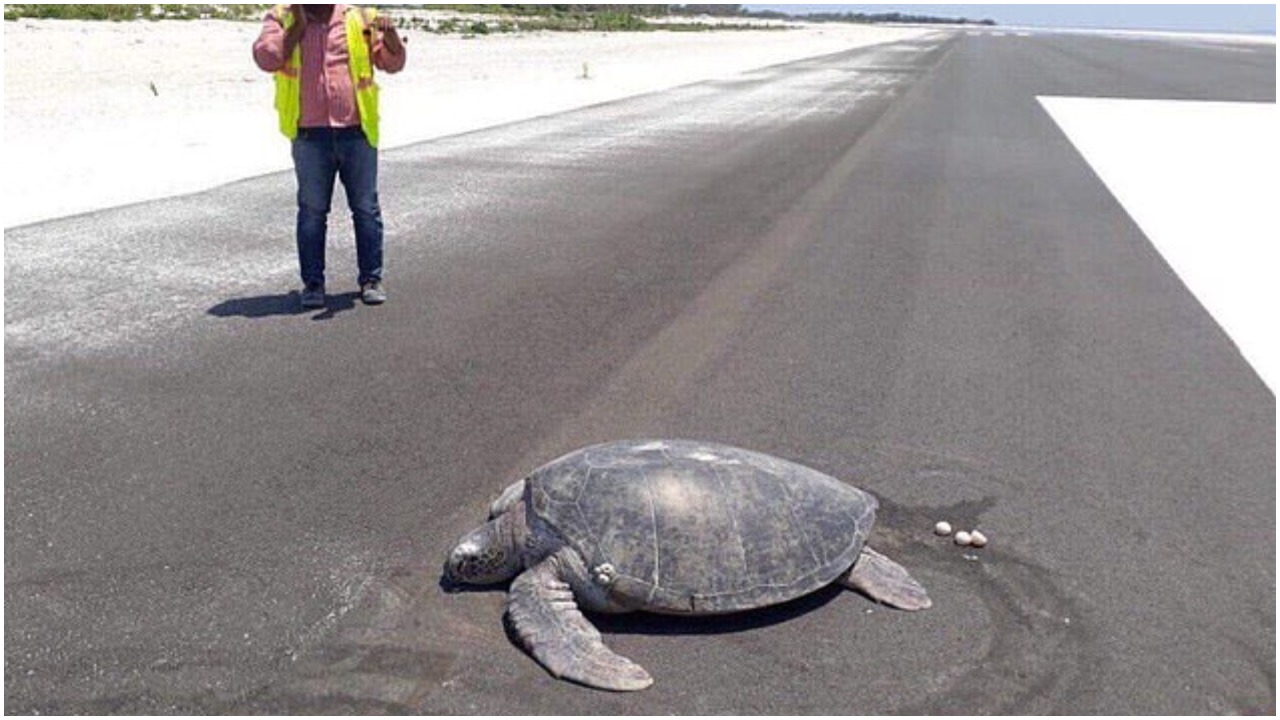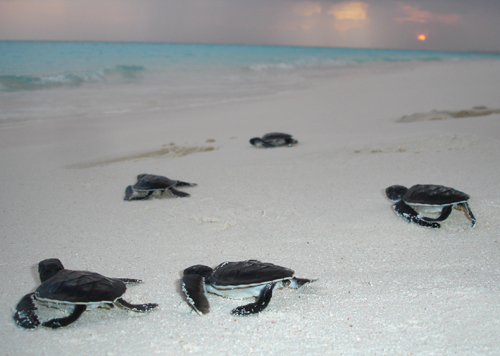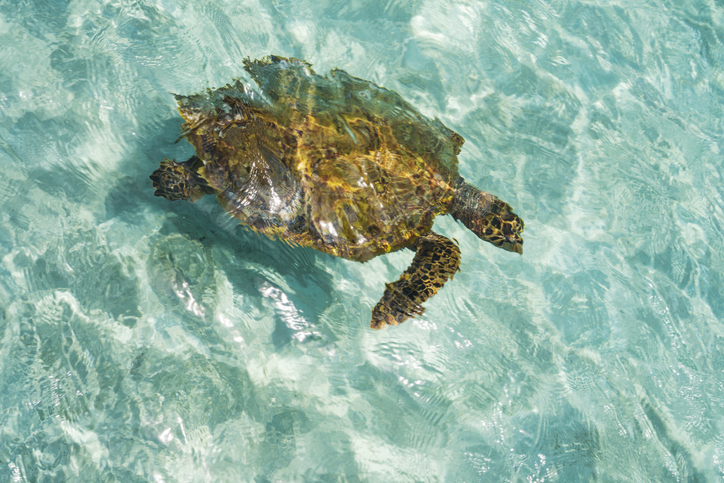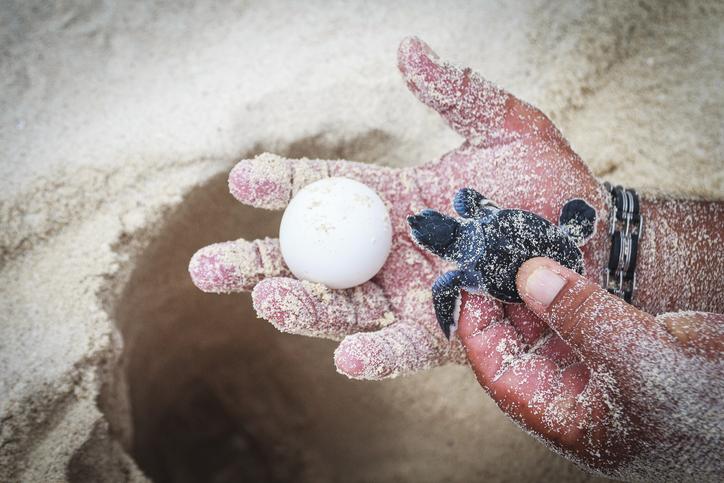Rare Turtle Returns to Beach to Lay Eggs, but Finds an Airstrip Instead

We live in a 24-hour bad-news cycle, particularly when it comes to environmental matters and the destruction of species and their natural habitats.
The World Wildlife Fund (WWF), an organization based in Washington, D.C., estimates that hundreds of species large and small have already disappeared from our planet, and will never re-establish themselves, no matter what lengths we go to trying to reintroduce them.
Every day at least one new species is listed as “endangered” or “threatened” or “at risk” on the WWF’s website, everything from tiny insects in the rain forests to giant leopards that used to roam freely in Africa and elsewhere.

This depressing scenario played out yet again recently, in the Maldives, a group of islands in the Indian Ocean. Historically underdeveloped, the Maldives are now a popular destination for people seeking a sun-drenched holiday in an exotic locale.
The problem is the Maldives are also home to an endangered species, the green sea turtle. This little creature has been returning to the area for centuries to lay eggs, and it has in the past been a safe place for the breed to mate and create the next generation.
But of late the green sea turtle’s future has been in peril, in just about every location around the globe it calls home. The seas are filled with plastic and other waste; the turtles get tangled in fishing nets and promptly drown if they aren’t freed, and now, a new airport is jeopardizing their breeding habits.

The green sea turtle returns each year in April to lay its eggs on Noonu Atoll Beach on Maafaru Island. But last August, work was completed on the new Maafaru Airport, a project that was funded by the Abu Dhabi Fund for Development, based in the United Arab Emirates (UAE). The airport includes a 7,200 foot runway, which will accommodate the takeoffs and landings of six jets.
Unfortunately, the runway lies smack dab in the middle of the green sea turtle’s nesting zone. In early April, one crawled out of the sea, just like she does every year.
Only instead of finding her soft, sandy beach onto which she could lay those eggs, she found a hard, cold, paved runway. Nonetheless, she dropped her eggs right there.
Fortunately, they were spotted by an airport worker, who rescued the turtle. All reports in the local media insist she was in good health, and was soon returned to the sea.
However, reports made no mention of what locals did with the eggs, which are prized by poachers. Let’s hope they made it to a conservation area and didn’t become someone’s supper.

Local government officials insist that the airport is not damaging the turtles or their penchant for Maafaru Island. “Despite the construction of the runway,” a spokesperson for Maafaru Island Council told local news website “The Edition,” “the frequency with which the turtles visit the island for nesting purposes has not decreased.”
This latest incident is yet another example of what happens when animals, with evolutionary instincts bred in that dictate where they breed, come up against man’s insatiable desire to spread out.
Environmentalists and activists are urging the Maldives – and other regions that are home to the world’s most threatened species – to follow sustainable development models. Others are begging them not to develop certain areas at all.

But is that a realistic plea? It hardly seems possible that mankind, in our inexhaustible appetite for profits, will ever pull back on developing land.
People need homes and want vacation spots, and when their needs are compared to those of animals, no matter how majestic or rare, the people’s needs will win out every time.
In fact, this small island in the Maldives plans to build a hotel and resort, to accommodate guest flying in on those brand new jets. The green sea turtle doesn’t seem to stand much of a chance against backhoes and drilling machines, to say nothing of the numerous holidaying tourists who will swarm the place.
